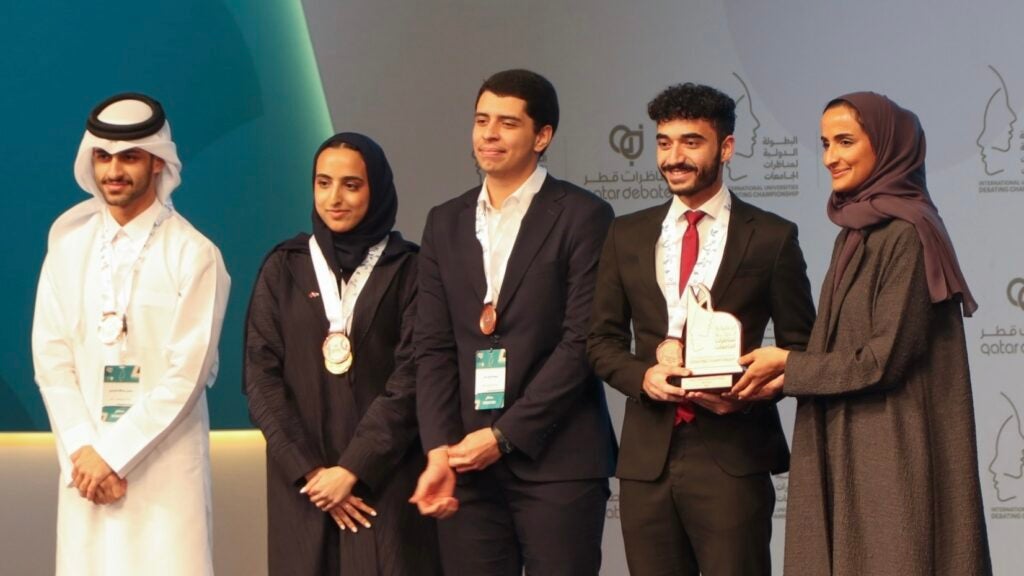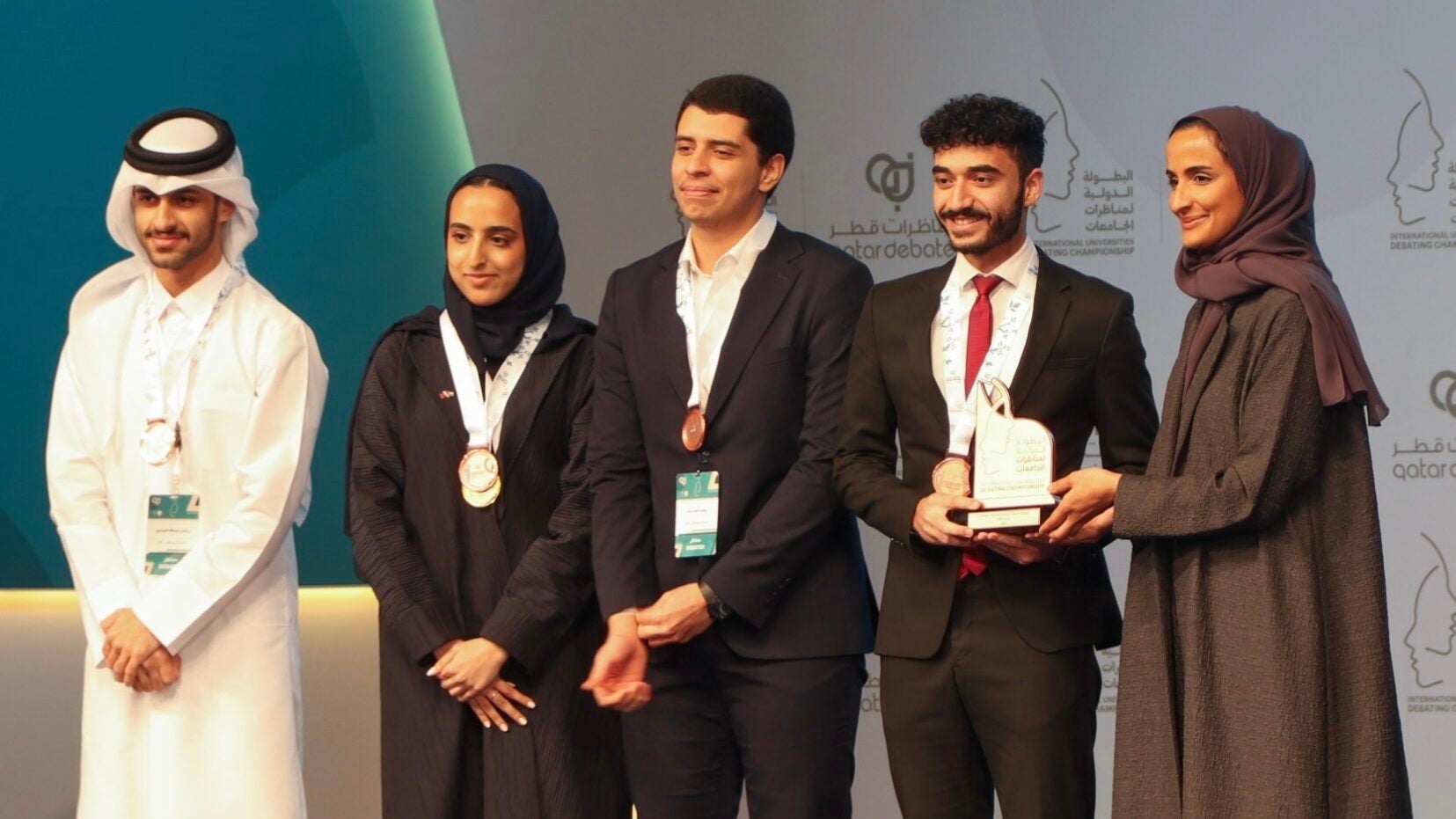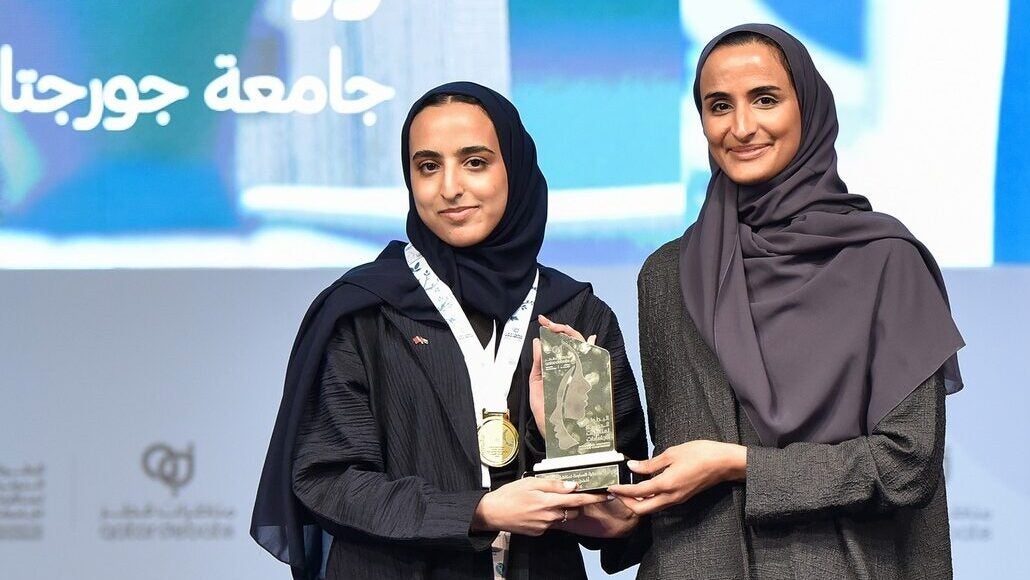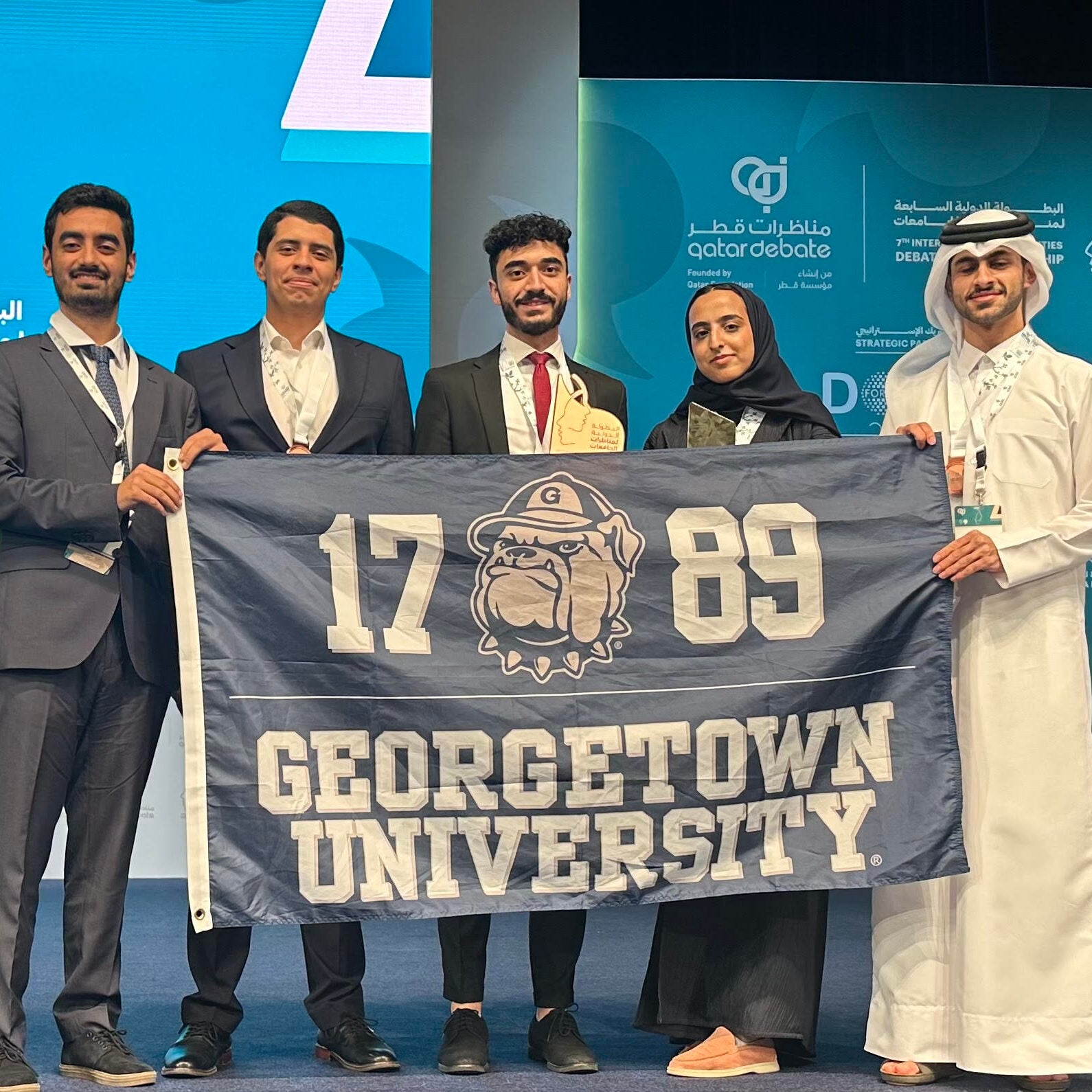Top 5 Debating Tips from GU-Q’s Arabic Team



In the bustling halls of the Qatar National Convention Centre, anticipation filled the air as students from over 50 countries gathered for the 7th International Universities Debating Championship. Amid fierce competition, the Georgetown University in Qatar (GU-Q) Arabic debate team secured third place, with Moza AlHajri (SFS’26) being named Best Speaker among participants from more than 100 universities.
Their success is a testament to rigorous preparation and teamwork. Here are their five tips:
1. Research and Preparation
Prepare thoroughly. With only 20 minutes to prepare for each debate round, Moza explains, “There is no room for on-the-spot research.” Instead, the team leverages their prior knowledge to build solid cases. “We use real-world examples we already know about,” she says. This approach allows them to form arguments quickly.
Hamza Al-Sioufy (SFS’24) adds that the team has built up its expertise over time to create a bank of examples and counterpoints. “We always try to stay current with all the global news and discuss its implications,” he explains. This long-term preparation helps them handle a wide range of topics effectively.
2. Clear and Structured Arguments
Focus on the clarity and structure of your argument. Moza emphasizes the importance of a structured speech: “In competitive debates, your aim is to convince the adjudication panel. Having a structured speech, where you outline your points, is essential.” This includes clarifying which points from the other side you responded to, what new points you are making, and how you support your team’s prior arguments.
Abdullah Hussein (SFS’24) mentions using the PEEL framework (Point, Evidence, Explanation, Link) to ensure their arguments are concise and easy to follow. Yousuf Salem (SFS’24) highlights the necessity of assuming the audience is unfamiliar with the topic, making it essential to build the argument slowly and clearly.
3. Adaptability and Quick Thinking
Practice thinking on your feet. Adaptability is a key strength of the GU-Q team, a skill they sharpen by anticipating the opposing team’s arguments and preparing responses in advance. “This allows us more time during the debate to think of responses to unexpected points,” explains Moza. Quick refutation is essential, adds Yousuf. “You need to pick up on the keywords and note what the other team is saying to respond correctly.”
Abdullah highlights their team’s adaptability, noting their diverse experience and Arabic language skills allow them to enter the tournament with long-term expertise and flexibility.
4. Team Collaboration
Build a strong team. Salman Al-Emadi describes the GU-Q Arabic Debate team as a “well-oiled machine,” with each member knowing their roles and complementing each other’s skills. “Our debate team is like a family. Beyond debating, we have built relationships that enhance our performance,” adds Hamza.
Moza adds that their collaboration during prep time ensures they enter the debate with a unified view of their case and strategy. “Each team member has a specific speaker position, and each position requires different skills during the debate,” she says. This setup allows them to operate independently yet cohesively during the debate. Abdullah underscores this teamwork: “We stayed in high spirits and supported each other, showing the true Hoya spirit of GU-Q.”

5. Continuous Learning and Improvement
Learn and improve continuously. According to Moza, constructive feedback from adjudicators is crucial, helping them identify weak points and focus on improvement, especially “as we face stronger and stronger teams consecutively.” Yousuf adds that they are critical of their performances, even when they win. “We evaluate our performance after each debate to ensure that we learn from our mistakes.” Salman emphasizes the value of diverse feedback, noting that learning from different judges helps them refine their skills.
Want to excel in every debate? GU-Q’s team has shared its five secrets: diligent preparation, structured arguments, quick thinking, effective collaboration, and constant learning. By embracing these strategies, you can elevate your debating skills to new heights. Congratulations to Moza, Hamza, Yousuf, Abdullah, and Salman for their outstanding performance!